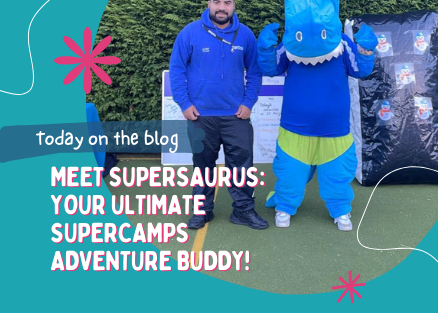Survival Tips from a Bushcraft Leader
Our 5-day Bushcraft: Rainforest Survival course aims to immerse children in the outdoors as they are introduced to a number of survival skills essential to navigating a world away from mobile phones, video games and GPS.
Ensuring every child comes away from the course with a real understanding of these skills, it’s the wild and fearless team of outdoors experts from our sister group, The Bushcraft Company, that deliver this fantastic course. Their energy and passion for the outdoors, combined with specialist knowledge on areas such as fire lighting and trap-making is sure to instill a sense of adventure and curiosity in every child attending the camp.
To find out more about what to expect from the course, we spoke to Bushcraft leader, Melissa, who shared with us her experience as an instructor, as well as some of her top survival tips.
What was it made you want to work as a Bushcraft Instructor?
It really came down to my love for the outdoors and wanting to inspire young people to reconnect with nature. Whether that’s inspiring them to look after our planet or simply to just get out of the house and find enjoyment in being outside. I think that now more than ever, it’s important that children have positive role models and these practical life experiences.
Do children need to have any experience doing this kind of thing before?
They don’t need any kind of experience! It’s normal for children to have never experienced anything like this before. Seeing wildlife up close for the first time or just being deep in the thick of a woodland area can be a world away from what they’re used to. Of course, it’s great if kids already have some interest but all they really need is to be open-minded! And of course- most importantly- they should be prepared to make a mess and get dirty!
What kind of survival skills will they learn?
The practical hands-on nature of the course means that children are constantly developing economical life skills to prepare them for real life and help them to find their independence. For example, children will learn first aid skills that they can then act out in our Scenario SOS activity. Faced with an airplane crash landing, they will need to use their first aid knowledge to help the “wounded casualties”. Other things they will learn are how to build fires and shelters, how to set a trap and even how to purify water. We teach these skills in a way that is informative and educational but still lots of fun!
We’ve seen that the course also offers children important opportunities for character development. What kind of life skills might children take from the course?
A lot of the team challenges we do are great at enhancing emotional and social skills. High intensity situations like SOS Scenario builds resilience, demands teamwork and helps children to learn to communicate effectively. Children may go onto camp not knowing anyone but by the end of the week they’ll have made friends for life.
There's also a real emphasis on creativity. Children will get to create their own tribe names, create unique camouflage prints, learn campfire songs, and even take part in Tribes got Talent at the end of the week. They’ll also get to make their own survival bracelets which really helps to improve things like motor skills and concentration.
What can children do outside of camp to engage with the world around them and apply the skills they’ve learnt on the course?
The best way to learn about nature is just to go outside. Even when it’s raining, go outside and enjoy being in the rain! You can also find a lot of great information for kids online covering everything from bird watching to foraging.
Finally, we’d love to hear about any top survival tips that you’ve acquired during your time as a leader. Can you share one with us?
Something we learn from day one is our motto ‘Leave No Trace’. This means always respecting the environment and learning that the outdoor spaces we use should always be found exactly the way we left them. For example, when we’re building fires, we’ll teach the children to clear away the debris by washing it away with water and digging up the soil. We'll then find leaves and twigs to cover the spot so it’s as if we were never there. If there’s one thing I’d hope children took from the course, it’s to respect and enjoy nature and always be mindful of our impact on the planet.
Bushcraft: Rainforest Survival is now available to book on to for Summer 2020. To make a booking, view the 5-day timetable and find out more about the course visit here






